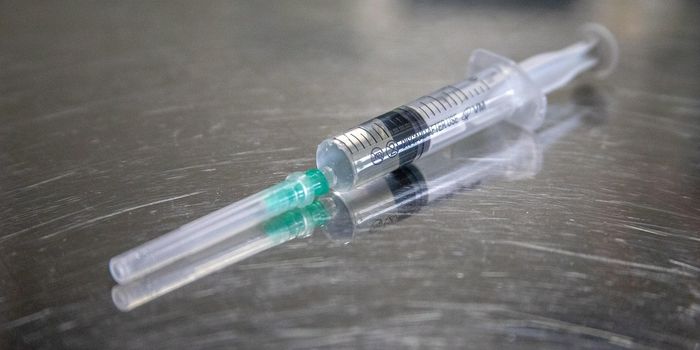An Antibody Successfully Treats Over 70% of Multiple Myeloma Patients in Trial
Almost every patient who gets myeloma and is treated with a standard therapy also experiences relapse. But researchers have developed an antibody therapy that triggers the immune system to destroy these cancer cells. The bispecific antibody can bind to T cells and multiple myeloma cells at once, to kill the cancer. This immunotherapy, called talquetamab, was astonishingly effective, and worked in about 73 percent of patients who were treated with the drug in two clinical trials. The treatment even helped for a patient who had a cancer that resisted all therapies that have been approved for multiple myeloma.
Talquetamab takes advantage of a receptor on myeloma cells called GPRC5D, and CD3, a complex and co-receptor on the surface of T cells. Anti-CD3 antibodies have long been known to cause the activation of T cells. Mouse studies showed that talquetamab can recruit and activate CD3-positive T-cells, which inhibits the formation and growth of tumors.
Talquetamab has now been tested in phase 1 and phase 2 clinical trials. Data from phase 1 found that there were two recommended doses. Phase 1 results showing that the drug is safe and effective have been reported in the New England Journal of Medicine; there were 232 participants. In phase 2, 143 volunteers were treated with the original dose and 145 participants got an additional dose; this work replicated the findings of the phase 1 trial, and were presented at the annual American Society of Hematology meeting. About 73 percent of both groups responded to the treatment.
All of the volunteers have previously used at least three different treatments for their cancer but did not attain remission before enrolling in this study. This work has shown that therapies can be created for people with myeloma that is difficult to treat.
Nearly three-quarters of the patients in the trial are now "looking at a new lease on life," said the lead author of the studies, Ajai Chari, MD, the Director of Clinical Research in the Multiple Myeloma Program at The Tisch Cancer Institute. "Talquetamab induced a substantial response among patients with heavily pretreated, relapsed, or refractory multiple myeloma, the second-most-common blood cancer."
The prognosis for multiple myeloma patients who are resistant to treatments or relapsing has been poor, so this work could make a major difference for many people.
It took a median time of 1.2 months for responses to the drug that were quantifiable. Over 30 percent of those in both groups had a complete response, with no detection of myeloma biomarkers, and about 60 percent had a "very good partial response" or better, which showed that while the cancer was not eliminated, it was substantially reduced.
There were side effects in about 60 percent of patients, which were mild but included cytokine release syndrome, taste changes, and nail disorders. Only about 5 percent of study participants stopped taking the drug because of side effects.
Sources: The Mount Sinai Hospital, New England Journal of Medicine









